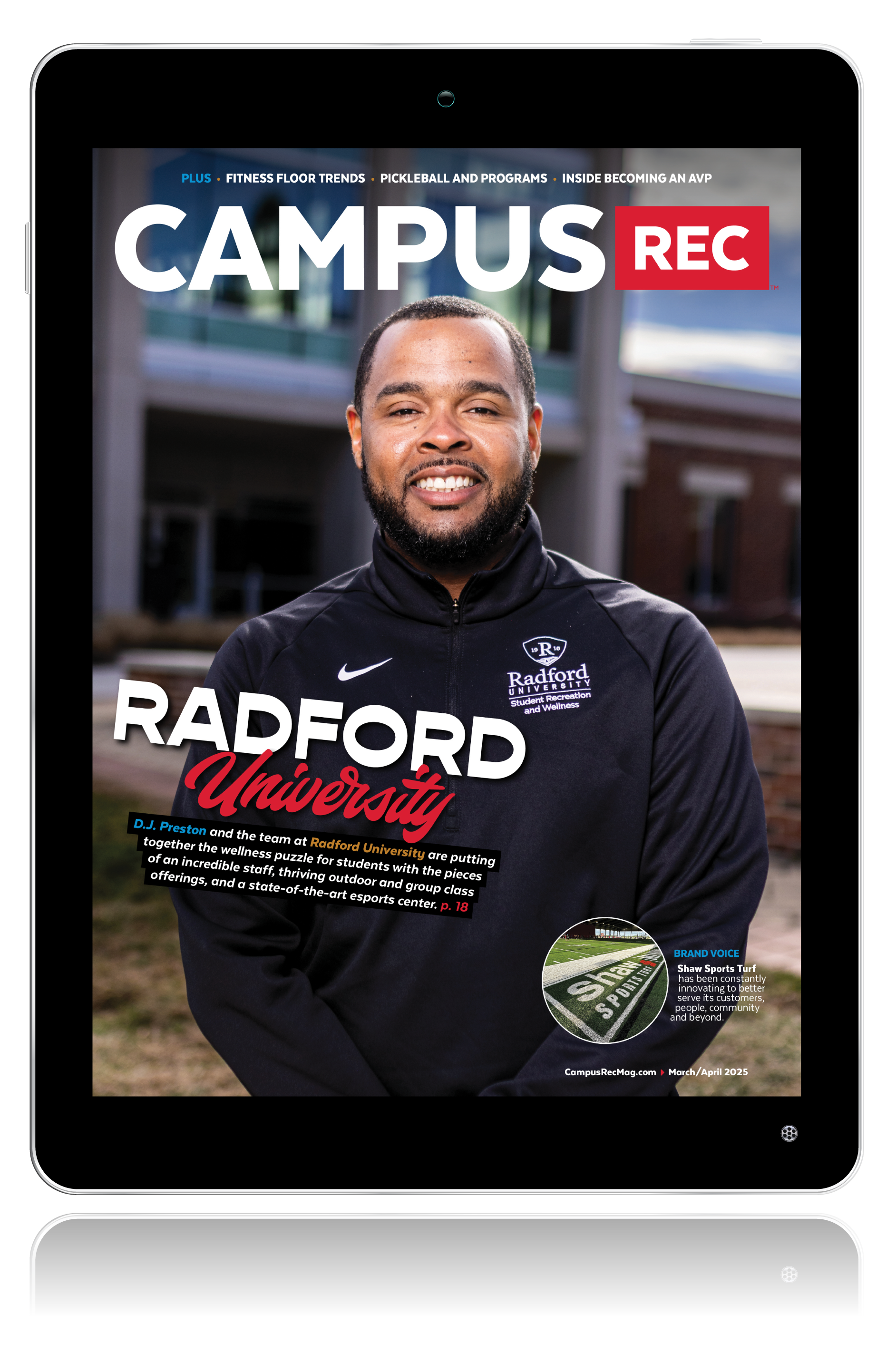Outdoor adventure programs can be a direct revenue stream for your campus recreation facility. The logical extension of having equipment already purchased for recreational trips is to generate more revenue by renting it to students, faculty, staff and the general public when you aren’t using it for trips. As the program grows, then more and more resources become available to expand the rental operations.
Robert Jones, manager of outdoor adventures at the University of Utah, said their outdoor program sees a high amount of rental equipment moving in and out. In their last fiscal year, they had equipment rentals from well over 5,000 students, another 3,000 faculty and staff uses and over 4,300 uses from the alumni and general community.
Jones said making purchases at a pre-season basis makes everything a little easier in terms of getting equipment ready in time for rentals.
“This spring I’ll be making purchases for winter equipment to be delivered next fall,” said Jones. “I try and buy camping and boating supplies in the fall to be delivered in the spring. The manufacturers don’t want to build X number of tents and not be able to sell them, so they do pre-season orders so you’re able to place an order early on and they know how many to build.”
Like with any equipment, damages are inevitable. Skis will need waxed and sharpened. Tent linings can rip. It’s important to have a plan in place for when these items need repaired so you aren’t constantly having to buy new equipment.
“If it’s fairly extensive damage and my shop isn’t set up to do the repair or I don’t have the right staff, I will take that equipment to a local retail shop that also does repairs and typically they will charge me for that repair, but the cost is passed on to the customer that damaged it,” said Jones. “Most stuff that is damaged through normal wear and tear, we can do in-house repairs that are quick and simple.”
Salt Lake City has a running joke within the community of calling themselves Ski City USA. Students see the benefits of the school having strong academic programs along with the campus being a 20-minute drive to many ski resorts. Because the ski resorts know one reason students go to the University of Utah is because of the skiing, partnering up with the university to offer discounts is an added benefit.
“At most of the local ski shops around town you can buy a lift ticket from them at a discount,” said Jones. “It is just a service the resorts provide if you buy it off the hill, down in a valley where you rent your skis, it saves you a couple dollars and takes pressure of their lines the next day. It just made sense for us to reach out to the resorts and buy these tickets and sell them to our students. Last year we sold over 1300 day passes to six or seven different resorts around here.”
Obviously not every university can offer winter equipment for rental, which makes knowing your market that much more important. Offering rental equipment or trips based on areas around you can save you money in the long run and grow the number of students participating.
“Schools right on the water may have windsurfer or sailboat operations,” said Jones. “You have to know what people are doing. Maybe up in Minnesota they would do a lot more cross country ski rental or road bike rental. There’s a reason people are involved in campus rec whether they want to be a member of an intramural team, they want to work out or they want to go on outdoor adventure trips. Those services provided by campus rec help the students build a community. If you build that sense of community and have those relationships, whether they are intramural teammates or the people you go camping or skiing with, those are your friends and the people that help you do better in school.”










